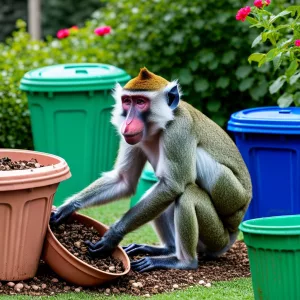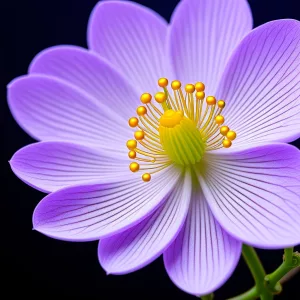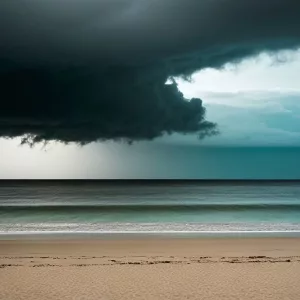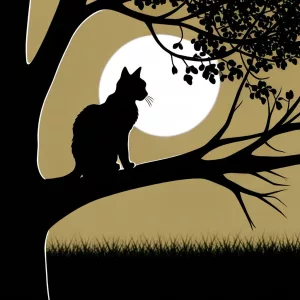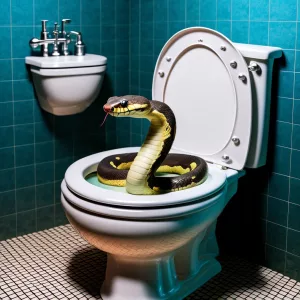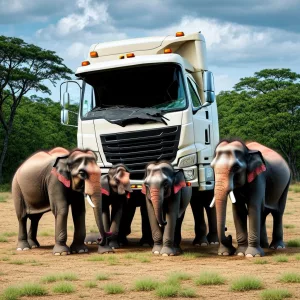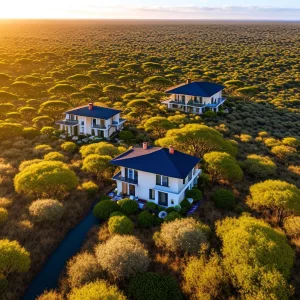In the beautiful town of Atlantis, shocking secrets have been uncovered in animal shelters, revealing terrible neglect and abuse. The SPCA found 163 dogs and 29 tortoises in dire conditions, showing that some shelters are not the safe havens they claim to be. This pattern of cruelty is disturbing, as other cases have also shown dogs, cats, and rabbits suffering from neglect. The SPCA is fighting hard for better rules and accountability to protect these vulnerable animals and ensure they receive the care they truly deserve. Amidst this dark reality, there is hope as the SPCA works to bring about meaningful change for all animals in need.
Dinosaur tracks discovered in South Africa’s Western Cape are like magical windows into the past, revealing how these incredible giants once moved and lived. Recent findings show footprints from about 140 million years ago, offering fresh clues about dinosaurs in a region previously thought to have few traces of them. These footprints, found in sandy and muddy areas, tell stories of the dinosaurs’ daily lives and add excitement to our understanding of their world. As researchers continue to explore this area, they hope to uncover even more tracks, inspiring everyone to join the adventure of discovering the mysteries of our planet’s ancient past.
Grappling with Nature: Cape Town’s Urgent Call for Preparedness Amid Escalating Weather Challenges
Cape Town is facing a tough winter with wild weather bringing chaos to the city. To stay safe, residents are urged to prepare by making emergency kits, clearing brush around their homes, and joining community workshops on disaster readiness. With a huge rise in weatherrelated incidents recently, everyone needs to pitch in—especially as powerful winds and fires threaten neighborhoods. By working together and using modern tools, Cape Town can better handle these fierce storms and protect its people.
Rabies is now a serious threat to Cape Fur Seals, once seen as graceful ocean dwellers. Symptoms like aggression, confusion, foaming at the mouth, and paralysis signal the deadly disease’s presence. A recent shocking video shows a seal acting strangely, raising alarms among scientists. This marks a new danger for marine life, as rabies usually affects land animals. To fight back, researchers are launching a campaign to understand and protect these seals, reminding us how fragile our ocean ecosystems can be.
In Cape Town, cat fostering is a heartwarming way for people to help cats and kittens find loving homes. Local groups like Foster Love Animal Rescue and TEARS play vital roles in this effort, making sure these furry friends receive care and support. As residents open their homes to these playful companions, they create strong bonds in their community, all while bringing joy and comfort into their lives. This beautiful movement showcases the city’s love for animals and the collective spirit to make a difference, proving that even in a busy city, kindness and compassion thrive.
Cape Town is a magical place for diving, with stunning spots like Castle Rock, colorful kelp forests in False Bay, and the haunting Antipolis wreck. Divers can explore vibrant marine life and beautiful underwater landscapes at around 350 dive sites, perfect for everyone from beginners to experts. The kelp forests feel like an underwater jungle, offering peace and wonder, while the historical wrecks invite adventurous souls to uncover stories from the past. With its rich ecosystems and thrilling encounters with creatures like seals and dolphins, diving in Cape Town is an unforgettable adventure waiting to be discovered!
A historic agreement has been made to protect the endangered African Penguin from extinction by limiting fishing around six important breeding islands. This deal, reached through cooperation among the government, conservation groups, and the fishing industry, aims to ensure the penguins have enough food to survive. Once a common sight along Africa’s coast, their numbers have dropped drastically due to overfishing. This landmark effort shows that people can work together to balance nature and industry, giving hope for a brighter future for these charming birds.
The Polyphagous Shot Hole Borer (PSHB) is a dangerous beetle invading Cape Town’s trees, especially weeping willows and English oaks. This tiny pest can cause big harm, leading to the loss of urban forests and the animals that live in them. In Oakdale, the first sighting has sparked worry among locals, urging everyone to check their trees for signs of this beetle. Leaders are calling for community action and teamwork to inspect trees and stop the spread of this threat, making it clear that every little effort counts in protecting Cape Town’s green spaces and natural beauty.
In the beautiful coastal town of Simon’s Town, wildfires have forced clever baboons to seek food and shelter among people. As these playful primates rummage through gardens and trash bins, locals have mixed feelings—some find them funny, while others are frustrated by the chaos they cause. To help harmony thrive, residents are encouraged to keep their homes secure, avoid feeding the baboons, and support efforts to restore their natural habitat. By making smart choices, both humans and baboons can share this vibrant space together, reminding us all of our bond with nature.
Moraea anastasia is a stunning new plant found in South Africa, shining brightly in the face of human disruption. Discovered on the slopes of Botmaskop by botanist Dr. Brian du Preez, this delicate flower is part of the Iris family and represents nature’s strength despite challenges. As a critically endangered species, its discovery highlights the urgent need for conservation efforts in the area, especially with nearby developments threatening its habitat. This remarkable plant not only enriches South Africa’s biodiversity but also inspires a renewed appreciation for the beauty of nature.
Cape Town’s beautiful coastal waters are in trouble due to rising bacteria levels, especially at popular spots like Saunders’ Rocks and Camps Bay. Many people have reported getting sick after swimming, raising alarms about water safety. Activists, like Mark Jackson, are working hard to expose the problem and urge city leaders to take action. Despite some officials saying the water is safe, experts highlight serious pollution issues that need urgent fixing. The community is coming together, pushing for better testing and safer beaches to protect both people and the environment.
Padfoot, a brave little cat, went missing for seven long years but finally returned home, thanks to a tiny microchip. His story began when Kira Bird found him as a helpless kitten on the streets of Dubai. After moving to South Africa, Padfoot wandered away, but a kind woman named Sandra took care of him all those years, feeding him and keeping him safe. When rescue workers discovered his microchip, they were able to reunite him with the Bird family, bringing immense joy and reminding everyone how important it is to keep pets safe with microchips. Padfoot’s incredible journey is a heartwarming tale of love, community, and resilience.
On a sunny afternoon, the Parklands family discovered a Cape cobra lounging in their toilet, startling them and highlighting the dangers of urban wildlife encounters. As homes expand into natural habitats, snakes like the Cape cobra are increasingly finding their way into neighborhoods. Quickthinking Andrew MacLeod from Snake Relocation rushed to help, showcasing the urgent need for safety and preparedness in such situations. This incident also sheds light on a concerning antivenom shortage in South Africa, making it more important than ever for communities to stay aware and ready to handle wildlife interactions safely.
On March 5th, 2023, a peaceful day at Olifantskop Pass turned chaotic when a truck carrying four elephants tipped over. The elephants were being moved to a new home at Samara Karoo Reserve, but their journey took a scary turn, raising alarms from the SPCA about their safety. The SPCA worried that the elephants were suffering and questioned the ethics of moving them to a private reserve. A brave rescue team quickly arrived to help the elephants and the driver, ensuring everyone was safe. This incident sparked important conversations about how we care for and manage wildlife, reminding us that protecting animals is a big responsibility.
Cape Town’s tap water has a peculiar earthy taste, thanks to a compound called Geosmin, which can become more noticeable during hot weather. While residents might find this flavor strange, the city assures everyone that the water is safe to drink. Geosmin is also found in beetroots and even gives off a nostalgic smell after rain. Local residents are adapting, with some even finding creative ways to incorporate the unique flavor into their cooking. This situation highlights the connection between urban life and nature, reminding us of the beauty and complexity of our environment.
The Botmaskop Fynbos Estate, a fancy housing project in Stellenbosch, is facing a big fight over its impact on the environment. The Stellenbosch Interest Group (SIG) is challenging the project, saying it was approved without enough public input and threatens the beautiful natural surroundings. As construction moves forward, SIG is asking the court to pause the project until its legality is assessed, fearing that once built, it will harm the area’s unique beauty for good. The developers, on the other hand, argue that stopping the project now would lead to serious financial problems. This clash highlights the tough balance between luxury development and protecting the environment, raising important questions about how we value and care for our landscapes.









